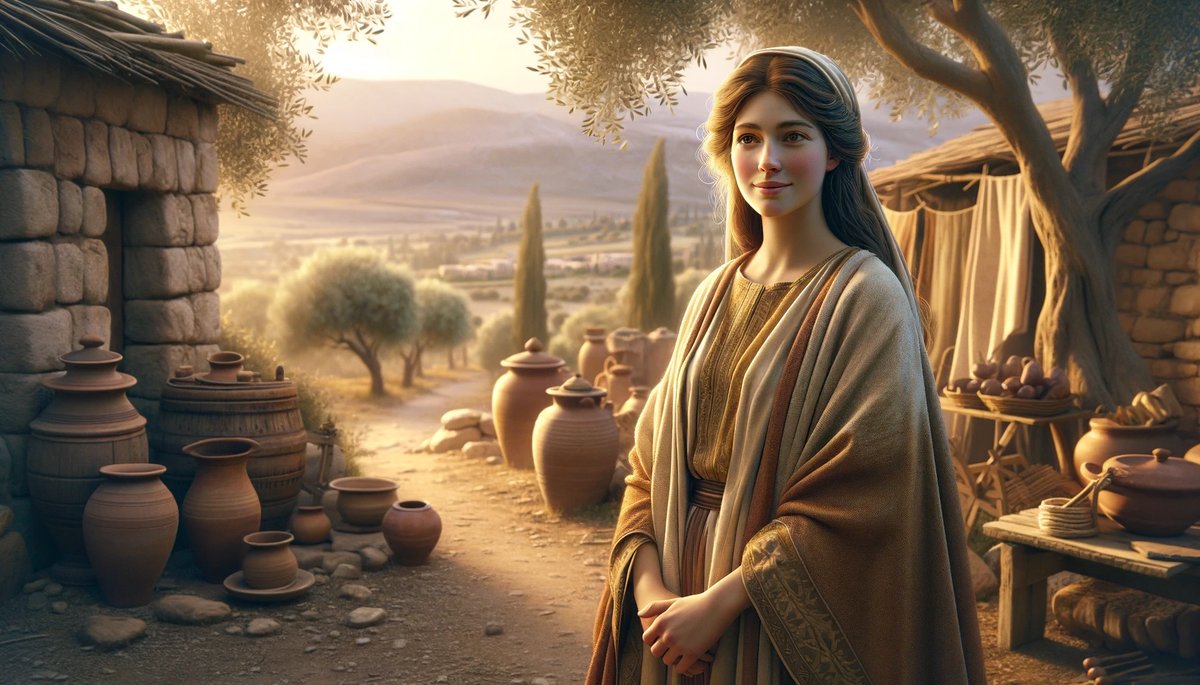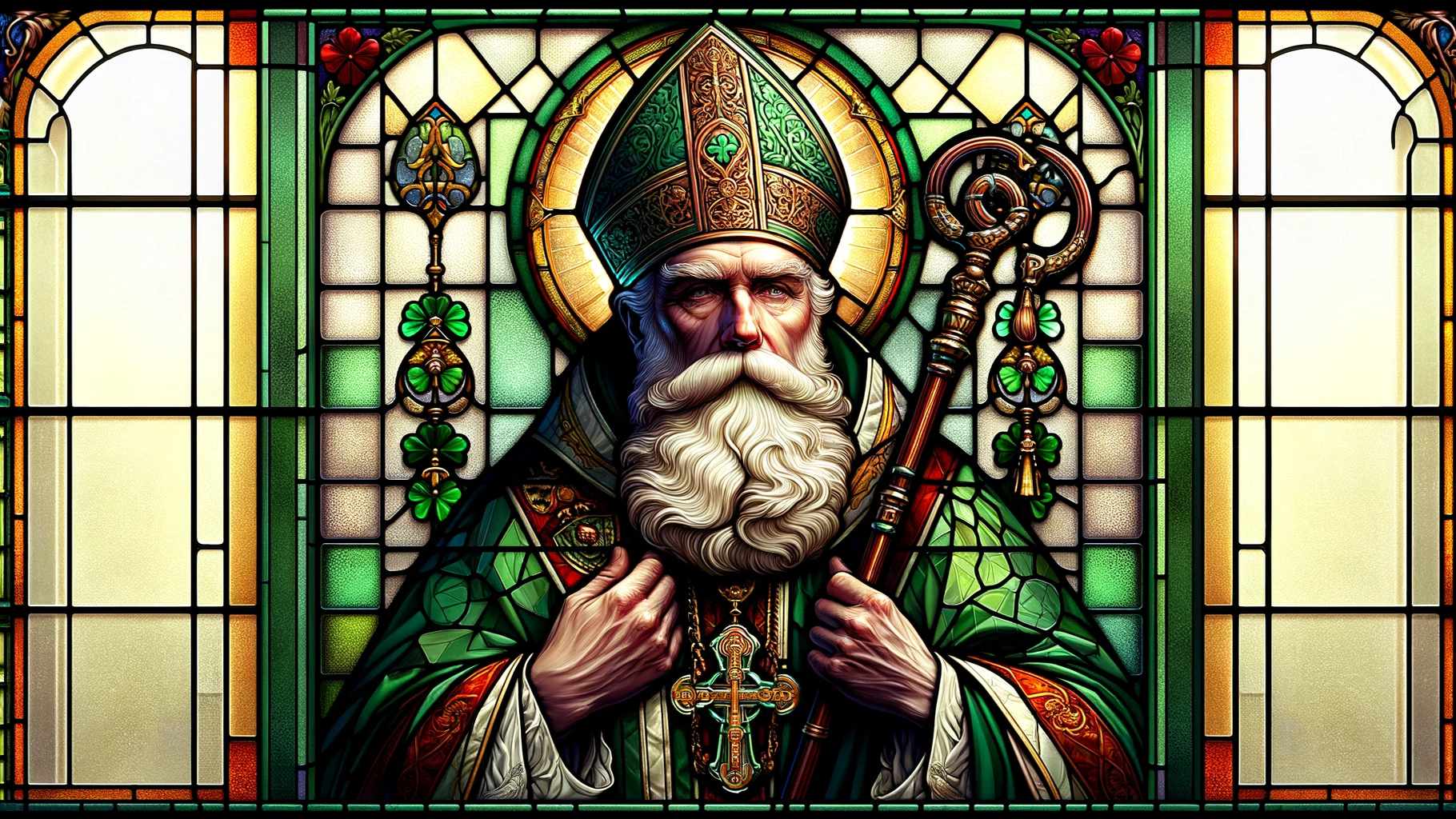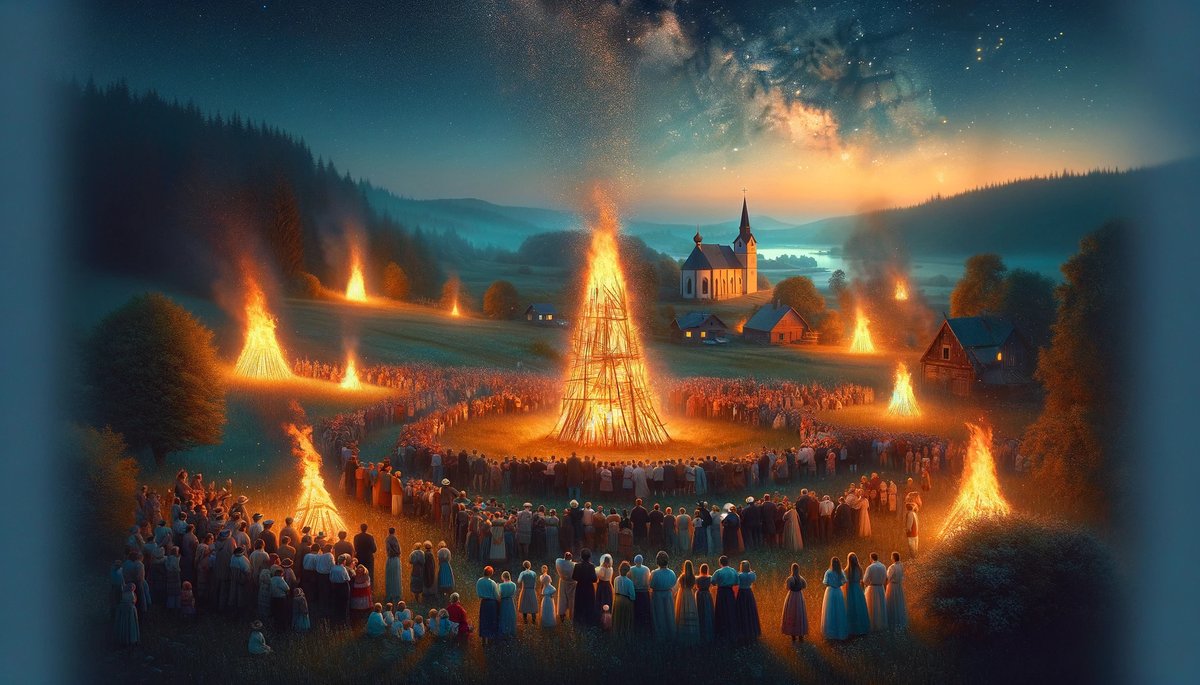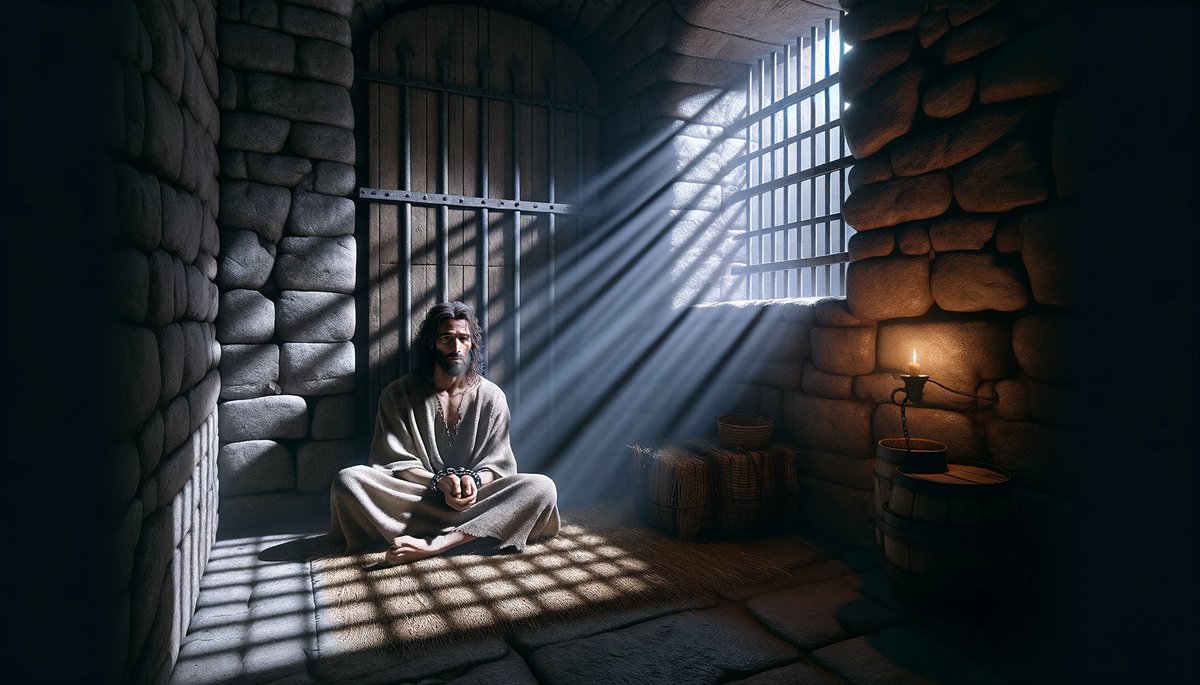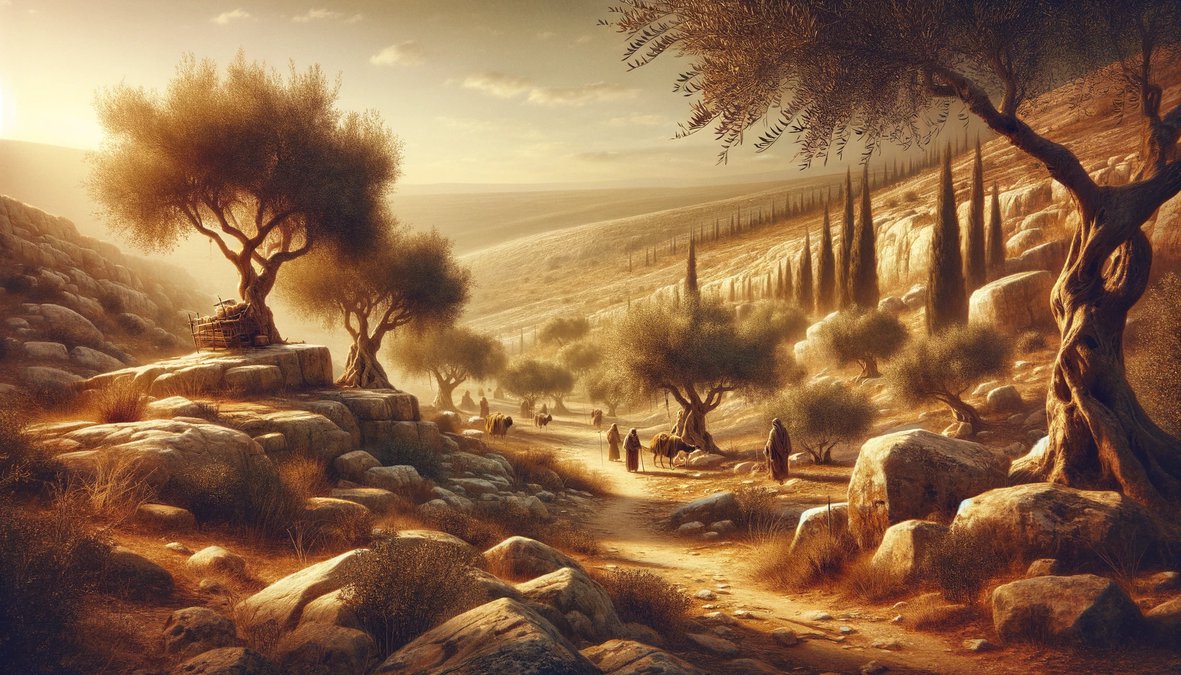Home>Theology and Spirituality>When Is The Feast Of Saint John The Baptist


Theology and Spirituality
When Is The Feast Of Saint John The Baptist
Published: February 20, 2024
Jason DeRose, Managing Editor at Christian.net, uses his expertise in religion and journalism to deepen understanding of faith's societal impacts. His editorial leadership, coupled with a strong academic background, enriches the platform’s diverse content, earning him recognition in both journalism and religious circles.
Learn about the significance and traditions of the Feast of Saint John the Baptist in theology and spirituality. Find out when this important celebration takes place.
(Many of the links in this article redirect to a specific reviewed product. Your purchase of these products through affiliate links helps to generate commission for Christian.net, at no extra cost. Learn more)
Table of Contents
Introduction
The Feast of Saint John the Baptist is a significant celebration in the Christian calendar, honoring the birth of John the Baptist, a pivotal figure in religious history. This joyous occasion is observed with reverence and merriment by various Christian denominations worldwide. The feast serves as a time for reflection, spiritual renewal, and communal gatherings, fostering a sense of unity and devotion among believers.
The commemoration of Saint John the Baptist holds a special place in the hearts of many faithful individuals, as it symbolizes the heralding of a new era and the fulfillment of divine prophecies. The feast provides an opportunity for believers to honor the life and contributions of John the Baptist, whose unwavering faith and dedication to his calling continue to inspire countless individuals across generations.
As we delve into the history, traditions, and global significance of the Feast of Saint John the Baptist, we will uncover the rich tapestry of customs and rituals that have been passed down through centuries, encapsulating the profound spiritual and cultural heritage associated with this revered celebration. Join us on a journey to explore the timeless traditions and vibrant festivities that encapsulate the essence of the Feast of Saint John the Baptist.
Read more: When Is The Feast Of Saint Augustine
History of the Feast of Saint John the Baptist
The history of the Feast of Saint John the Baptist dates back to the early Christian era, intertwining biblical narratives with cultural and religious significance. The feast commemorates the birth of John the Baptist, a pivotal figure whose life and ministry are intricately linked with the advent of Jesus Christ.
The origins of the feast can be traced to ancient Christian traditions, with the earliest records of its observance dating to the 5th century. The choice of June 24th as the feast day aligns with the traditional date of John the Baptist's birth, as mentioned in the Gospel of Luke. This historical connection adds a layer of authenticity and reverence to the celebration, underscoring its deep roots in Christian history.
The biblical accounts of John the Baptist, found in the Gospels of Matthew, Mark, Luke, and John, depict him as a prophetic figure who heralded the coming of the Messiah. His pivotal role in baptizing Jesus and proclaiming the arrival of the Kingdom of God solidifies his significance within Christian theology. John's unwavering commitment to his divine calling, coupled with his ascetic lifestyle and powerful preaching, earned him a revered status among believers.
The Feast of Saint John the Baptist serves as a testament to the enduring legacy of John's ministry and his profound impact on the early Christian community. Through the centuries, the feast has evolved to encompass a blend of religious observances, cultural traditions, and communal celebrations, reflecting the diverse tapestry of Christian heritage.
As the feast continues to be observed with reverence and fervor, it stands as a poignant reminder of the timeless message embodied by John the Baptist – a message of repentance, spiritual awakening, and the anticipation of a new era of grace and salvation. The history of the Feast of Saint John the Baptist resonates with the essence of faith, resilience, and the enduring power of divine providence, encapsulating the profound spiritual journey of John the Baptist and its enduring impact on Christian tradition.
Traditions and customs associated with the feast
The Feast of Saint John the Baptist is steeped in a rich tapestry of traditions and customs that have been cherished and upheld by generations of devout believers. These time-honored practices serve as a testament to the enduring significance of the feast and the profound cultural heritage it embodies.
One of the most prevalent customs associated with the feast is the ritual of bonfires. In many regions, particularly in Europe and parts of the Americas, communities gather on the eve of the feast to light bonfires as a symbolic gesture of purification and renewal. The crackling flames and the warm glow of the bonfires evoke a sense of spiritual cleansing and the dispelling of darkness, echoing the themes of repentance and spiritual transformation associated with John the Baptist's ministry.
Another cherished tradition linked to the feast is the consumption of special foods and beverages. In various cultures, it is customary to partake in festive meals featuring dishes that hold symbolic significance. For instance, in parts of Europe, it is common to indulge in dishes made from seasonal herbs and plants, such as St. John's Wort, believed to possess healing properties and protective virtues. Additionally, the brewing and consumption of special ales and wines, often referred to as "St. John's Beer" or "St. John's Wine," are integral to the culinary customs associated with the feast.
Furthermore, the tradition of water-related rituals holds a prominent place in the observance of the feast. This is deeply rooted in the biblical narrative of John the Baptist's baptism of Jesus in the River Jordan. In many communities, it is customary to partake in water-based activities, such as bathing in natural bodies of water or participating in ceremonial water blessings conducted by clergy members. These rituals symbolize spiritual purification and the renewal of faith, echoing the transformative nature of John the Baptist's message of repentance and redemption.
Additionally, the vibrant display of floral decorations and garlands is a hallmark of the feast in numerous cultures. Flowers, particularly those in bloom during the summer season, are used to adorn homes, churches, and public spaces, infusing the surroundings with a sense of natural beauty and spiritual reverence. The use of aromatic herbs and flowers, such as lavender and rosemary, further enhances the sensory experience, creating an ambiance of tranquility and spiritual upliftment.
These cherished traditions and customs associated with the Feast of Saint John the Baptist serve as a testament to the enduring legacy of John the Baptist and the profound impact of his ministry on the cultural and spiritual fabric of diverse communities. As believers gather to partake in these time-honored rituals, they are reminded of the timeless message of faith, renewal, and the enduring legacy of John the Baptist, which continues to resonate through the ages.
Date and significance of the feast in different cultures
The Feast of Saint John the Baptist is celebrated with diverse cultural nuances and holds varying degrees of significance across different regions and communities. The date of the feast, June 24th, aligns with the traditional birth date of John the Baptist, as mentioned in the Christian calendar. However, the observance of the feast is imbued with unique customs and interpretations in various cultures, adding depth and richness to its global significance.
In European cultures, particularly in countries such as Spain, Italy, and Portugal, the Feast of Saint John the Baptist is marked with exuberant festivities that blend religious reverence with vibrant cultural traditions. In Spain, the celebration, known as "La Noche de San Juan" or "The Night of Saint John," is characterized by lively street parties, bonfires, and fireworks. The tradition of leaping over bonfires symbolizes purification and the casting away of negativity, while the consumption of "coca de Sant Joan," a special pastry, adds a culinary dimension to the revelry. In Italy, the feast is observed with processions, feasts, and the display of intricate floral decorations, underscoring the spiritual and communal significance of the occasion. Similarly, in Portugal, the feast is marked by bonfires, music, and the consumption of traditional foods, creating a festive atmosphere that unites communities in celebration.
In Scandinavian countries, the Feast of Saint John the Baptist, known as "Johannes Dagen" or "Midsummer," is intertwined with ancient pagan traditions that have been seamlessly integrated into Christian observances. The festivities include the raising of maypoles, communal dancing, and the consumption of seasonal delicacies, reflecting the cultural heritage of the region. The significance of the feast in these cultures extends beyond religious observance, encompassing the celebration of the summer solstice and the abundance of nature, highlighting the harmonious blend of Christian and pagan influences.
In Latin American countries, the feast is celebrated with fervor, blending indigenous customs with Christian rituals. The observance often includes colorful processions, music, and dance, creating a vibrant tapestry of cultural expression. In Brazil, the feast, known as "Festa Junina," features traditional folk dances, bonfires, and the consumption of typical foods, such as "canjica" and "pamonha," reflecting the fusion of European, indigenous, and African influences in the festivities.
The significance of the Feast of Saint John the Baptist in different cultures underscores its universal appeal and adaptability, as it seamlessly integrates with local customs and traditions, fostering a sense of communal unity and spiritual reverence. Across the globe, the feast serves as a testament to the enduring legacy of John the Baptist and the profound impact of his ministry on diverse cultural landscapes, uniting believers in a shared celebration of faith and heritage.
How the feast is celebrated around the world
The Feast of Saint John the Baptist is celebrated with diverse cultural nuances and holds varying degrees of significance across different regions and communities. The date of the feast, June 24th, aligns with the traditional birth date of John the Baptist, as mentioned in the Christian calendar. However, the observance of the feast is imbued with unique customs and interpretations in various cultures, adding depth and richness to its global significance.
In European cultures, particularly in countries such as Spain, Italy, and Portugal, the Feast of Saint John the Baptist is marked with exuberant festivities that blend religious reverence with vibrant cultural traditions. In Spain, the celebration, known as "La Noche de San Juan" or "The Night of Saint John," is characterized by lively street parties, bonfires, and fireworks. The tradition of leaping over bonfires symbolizes purification and the casting away of negativity, while the consumption of "coca de Sant Joan," a special pastry, adds a culinary dimension to the revelry. In Italy, the feast is observed with processions, feasts, and the display of intricate floral decorations, underscoring the spiritual and communal significance of the occasion. Similarly, in Portugal, the feast is marked by bonfires, music, and the consumption of traditional foods, creating a festive atmosphere that unites communities in celebration.
In Scandinavian countries, the Feast of Saint John the Baptist, known as "Johannes Dagen" or "Midsummer," is intertwined with ancient pagan traditions that have been seamlessly integrated into Christian observances. The festivities include the raising of maypoles, communal dancing, and the consumption of seasonal delicacies, reflecting the cultural heritage of the region. The significance of the feast in these cultures extends beyond religious observance, encompassing the celebration of the summer solstice and the abundance of nature, highlighting the harmonious blend of Christian and pagan influences.
In Latin American countries, the feast is celebrated with fervor, blending indigenous customs with Christian rituals. The observance often includes colorful processions, music, and dance, creating a vibrant tapestry of cultural expression. In Brazil, the feast, known as "Festa Junina," features traditional folk dances, bonfires, and the consumption of typical foods, such as "canjica" and "pamonha," reflecting the fusion of European, indigenous, and African influences in the festivities.
The significance of the Feast of Saint John the Baptist in different cultures underscores its universal appeal and adaptability, as it seamlessly integrates with local customs and traditions, fostering a sense of communal unity and spiritual reverence. Across the globe, the feast serves as a testament to the enduring legacy of John the Baptist and the profound impact of his ministry on diverse cultural landscapes, uniting believers in a shared celebration of faith and heritage.
Read more: When Is St. John The Baptist Feast Day
Conclusion
The Feast of Saint John the Baptist stands as a timeless testament to the enduring legacy of John the Baptist and the profound impact of his ministry on the spiritual and cultural tapestry of diverse communities. As believers across the globe gather to commemorate the birth of this revered figure, they partake in a rich tapestry of traditions, customs, and celebrations that encapsulate the essence of faith, renewal, and communal unity.
From the crackling bonfires of European festivities to the vibrant processions of Latin American observances, the feast serves as a unifying force, transcending geographical boundaries and cultural differences. The enduring significance of the feast lies in its ability to seamlessly integrate with local customs and traditions, fostering a sense of shared heritage and spiritual reverence among believers.
The history of the Feast of Saint John the Baptist, rooted in biblical narratives and early Christian traditions, underscores the enduring relevance of John the Baptist's message of repentance, spiritual awakening, and the anticipation of a new era of grace and salvation. The feast serves as a poignant reminder of the timeless values embodied by John the Baptist, inspiring believers to embrace the virtues of faith, resilience, and unwavering commitment to their spiritual journey.
As the bonfires illuminate the night skies and the aroma of seasonal herbs fills the air, believers are reminded of the enduring legacy of John the Baptist and the transformative power of his ministry. The feast serves as a beacon of hope, inviting individuals to embark on a journey of spiritual renewal and communal solidarity, echoing the timeless message of faith and redemption.
In conclusion, the Feast of Saint John the Baptist transcends mere religious observance; it embodies the collective spirit of communities coming together to honor a revered figure, celebrate shared traditions, and reaffirm their commitment to faith and spiritual growth. As the flames of the bonfires flicker and the echoes of festive music fill the air, the essence of the feast resonates through the hearts and minds of believers, uniting them in a shared celebration of faith, heritage, and the enduring legacy of John the Baptist.
